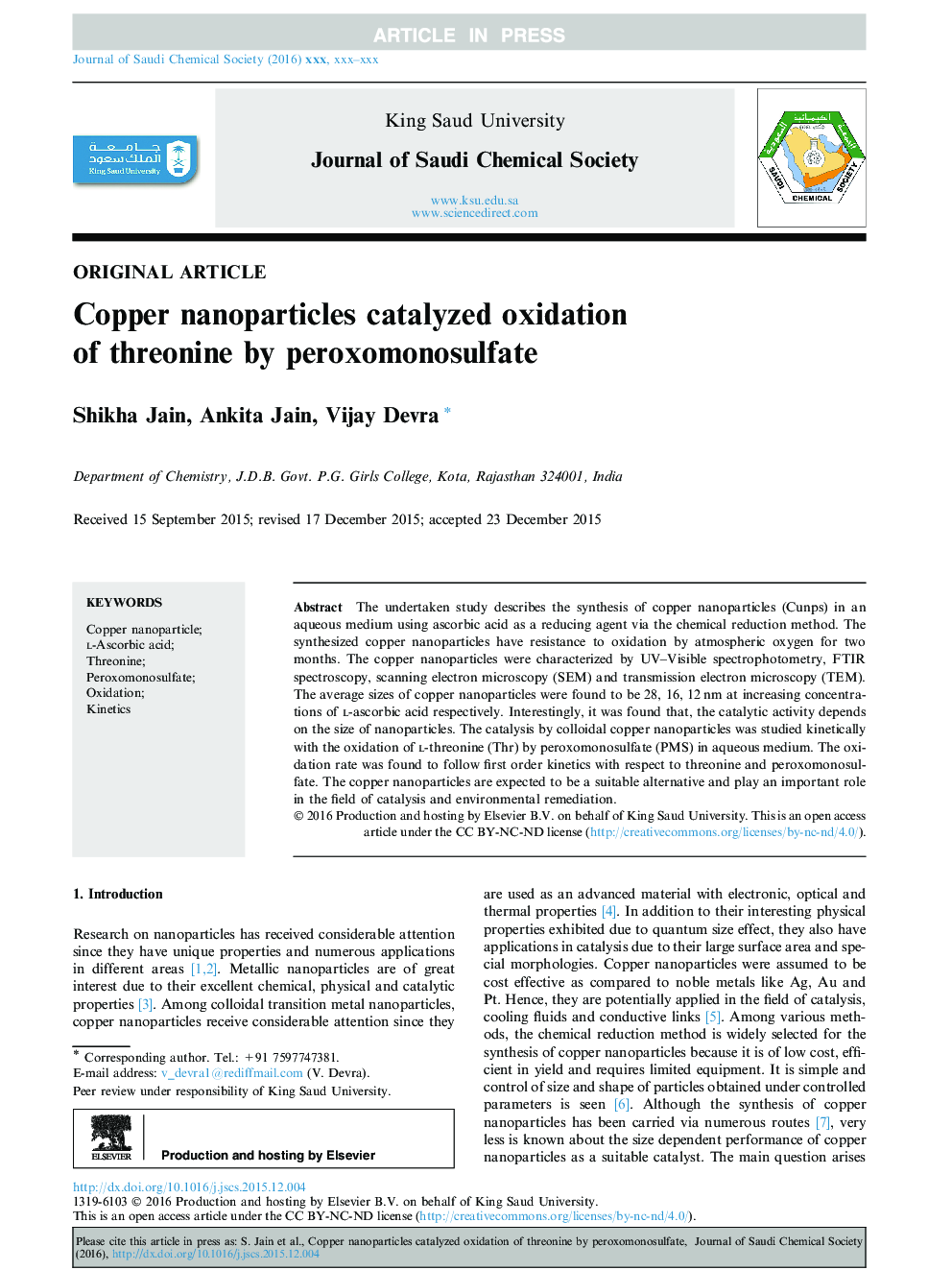| Article ID | Journal | Published Year | Pages | File Type |
|---|---|---|---|---|
| 6670044 | Journal of Saudi Chemical Society | 2017 | 8 Pages |
Abstract
The undertaken study describes the synthesis of copper nanoparticles (Cunps) in an aqueous medium using ascorbic acid as a reducing agent via the chemical reduction method. The synthesized copper nanoparticles have resistance to oxidation by atmospheric oxygen for two months. The copper nanoparticles were characterized by UV-Visible spectrophotometry, FTIR spectroscopy, scanning electron microscopy (SEM) and transmission electron microscopy (TEM). The average sizes of copper nanoparticles were found to be 28, 16, 12Â nm at increasing concentrations of l-ascorbic acid respectively. Interestingly, it was found that, the catalytic activity depends on the size of nanoparticles. The catalysis by colloidal copper nanoparticles was studied kinetically with the oxidation of l-threonine (Thr) by peroxomonosulfate (PMS) in aqueous medium. The oxidation rate was found to follow first order kinetics with respect to threonine and peroxomonosulfate. The copper nanoparticles are expected to be a suitable alternative and play an important role in the field of catalysis and environmental remediation.
Related Topics
Physical Sciences and Engineering
Chemical Engineering
Chemical Engineering (General)
Authors
Shikha Jain, Ankita Jain, Vijay Devra,
